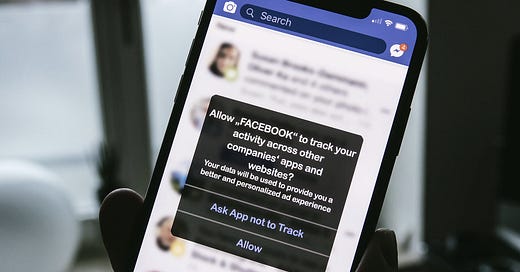Abuse of Dominance: Apple’s ATT Costs Its Competitors $10B While Increasing Its Revenues by $700M
Here is the first assessment after 6 months of ATT.
After having caused a lot of ink to flow at the end of 2020, then at the beginning of 2021, Apple's App Transparency Tracking (ATT) came into effect during April 2021. Just 6 months after the implementation of this transparency policy, it is already time to make a first assessment of the consequences of the new virtuous model pushed by Apple.
The results…
Keep reading with a 7-day free trial
Subscribe to Sylvain Saurel’s Newsletter to keep reading this post and get 7 days of free access to the full post archives.




